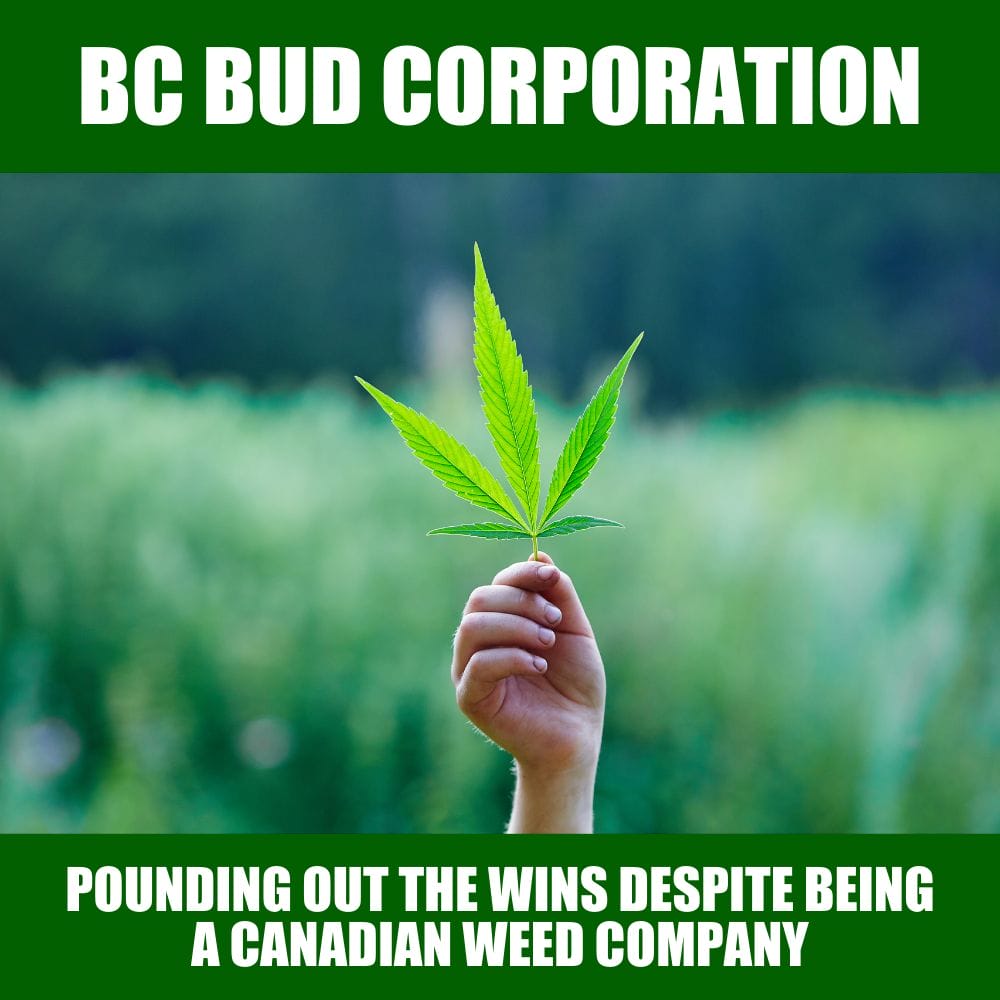The legal cannabis industry in Canada, still in its infancy nearly five years post-legalization, is traversing a tumultuous terrain. As the initial euphoria fades, the market is grappling with mounting challenges. These include the continuous race to the bottom with pot prices, the persistent prevalence of the illicit market, and the looming uncertainties in the face of regulatory hurdles and potential crises.
David Lobo, Ontario Cannabis Store president and CEO, recently highlighted the precarious nature of this situation during a speech at the Lift cannabis conference in Toronto. He emphasized the long-term impact of conditioning consumers to lower prices, particularly in an inflation-stricken economy. Such practices risk creating a generation of consumers with low price tolerances, making it hard to alter their perceptions.
The cannabis boom that came into full swing in 2018, following regulation, has significantly cooled off. The industry is now facing realities in the form of multimillion-dollar writedowns, layoffs, and an urgent need for restructuring product mixes. These adjustments are necessary to meet the evolving demand and navigate the regulatory landscape effectively.
The illicit market, however, continues to thrive, providing significantly cheaper products without legal restrictions. Recent estimates indicate that as much as 43 per cent of Ontario’s cannabis market in March 2023 was still dominated by the illicit market.
To stay afloat, legal cannabis producers are succumbing to the pressure of lowering prices. Statistics Canada revealed that the average cost of a gram of legal cannabis, which stood at $10.29 in 2019, has seen drastic reductions in recent times. This price compression is such that Canadian prices are considerably lower than in the U.S., despite offering the same product quality and specifications.
Lowering prices, however, doesn’t always equate to increased sales. Consumers are looking for more than just low prices, which indicates a need for a broader industry reevaluation.
The looming review of the Cannabis Act, initiated in September 2022, holds the potential to reshape the landscape of the legal cannabis market. It is crucial that this review takes into account the industry’s ability to compete with the illicit market while ensuring public health and safety.
The Cannabis Council of Canada (C3) has proposed broad changes to the act, including reducing the excise tax on cannabis products, easing restrictions on package labelling and advertising, and ending taxation of medical cannabis. As the legal market continues to compete with tax-free illicit products, these changes could play a crucial role in bolstering the industry’s strength.
The current rules around cannabis sales and promotions severely limit market growth, making it challenging to attract customers to new product varieties. Unlike alcohol, legal cannabis products, including edibles, are almost exclusively available in licensed stores, limiting their accessibility for potential consumers.
This may not be the most effective way to reach potential customers or compete with the illicit market. Regulatory changes could enable wider distribution, such as in restaurants or hotels, while still maintaining public health and safety standards.
Legal cannabis business owners in Canada are pleading for federal assistance, expressing concern that current high tax rates and stringent regulations are pushing their businesses to the brink of collapse. This distress signal comes in the wake of alarming layoffs and facility closures in the industry.
With Fire and Flower filing for creditor protection and news of Canopy Growth Corp., one of Canada’s largest cannabis producers, announcing it will lay off 35 per cent of its workforce and close a facility in Smiths Falls, Ontario, the legal cannabis sector in Canada is in jeopardy.
High excise taxes pose a significant challenge, particularly after a year of heightened inflation rates. The 2.3 per cent excise tax rate is proving too costly for the industry. This not only impacts sector players but those investing in the Canadian legal cannabis market.
A 2022 report revealed that Canadians collectively lost more than $131 billion investing in cannabis businesses. As profits wane, industry leaders are hopeful for swift intervention from the federal government, but that doesn’t seem to be happening despite promises.
The proposed ‘cannabis strategy table’, announced in Canada’s 2022 federal budget to provide a forum for discussion between government officials and cannabis industry executives, appears to be mired in bureaucratic and political complications, more than a year after its announcement.
The absence of the strategy table amidst a difficult economic landscape for the cannabis sector points towards the Canadian government’s passive approach to the industry. The recent 2023 federal budget also seemed to overlook substantial commitments to addressing government-imposed obstacles impacting cannabis businesses, adding to the industry’s concerns.
The failure to launch the cannabis strategy table and a perceived indifference towards the industry’s concerns reflect the significant challenges facing the legal cannabis sector in Canada.
Does this mean investors shouldn’t be touching the legal cannabis market with a 30-foot pole? Not necessarily. The need for due diligence is great indeed, because of the wild overvaluations and less than prudent business practices that early legal cannabis giants employed, but there is a new generation of cannabis operators, who play it prudent and are building a sustainable business in an uncertain business climate.
BC Bud Company (BCBC.C) is one of these companies and has emerged as a promising player in the wake of the market downturn. The company has positioned itself as a leading force in the regenerating legal cannabis sector, learning from the previous missteps and overvaluation issues of its predecessors.
Brayden Sutton, the founder of BC Bud, is a recognized name in the legal cannabis industry. Along with two other legal cannabis veterans, Marc Lustig and Josh Taylor. The BC Bud team represents a history of high-quality cannabis products and a commitment to sustainable business practices and investment growth.
BC Bud stands out as a vertically integrated player, fostering product quality and consistency through strategic partnerships with the finest small-batch cannabis cultivators. Their diverse product range includes beverages, edibles, and extracts, through their brands Buds Beverages, Canna Beans, and Solventless Solutions.
To achieve its ambitious growth plans, BC Bud has formed key partnerships with Dunesberry Farms, Blackrose Organics, Habitat, Tricanna Industries, and Peak Processing Solutions, covering everything from dried flower supply and manufacturing to packaging solutions and beverage production.
One characteristic that sets BC Bud apart from its first-generation counterparts is its commitment to fiscal responsibility. Emphasizing sustainable organic growth, BC Bud is focused on longevity in the industry rather than a quick exit.
In terms of financial performance, BC Bud reported $191,423 CAD in cash and cash equivalents for the three months ending November 30, 2022, with $161,727 in revenue and a net loss of $173,975 for the same period.
Recently, BC Bud announced the launch of six new products, including two live hash rosin budders, two live hash rosin-infused BCBC flower PR strains, a Mosambi Live Hash Rosin Vape Cart, and Alaskan Thunder F (ATF) 2 x 1 g pre roll flower SKU. These innovative offerings were created in partnership with Cedar Organics and Common Roots Extracts.
As the Canadian legal cannabis industry continues its journey, investors must remain sharp and spot the operators, like BC Bud Company, who possess the necessary resilience, innovation, and comprehensive understanding of market dynamics to navigate these turbulent waters.
*Full disclosure: BC Bud Co is an Equity Guru marketing client.








Ok Chris, when you are talking about the illicit market, which one?
There are two,
1. The personal grower, homegrown, back yard / bush guy. They still exist and they are the ones that have been doing this for decades and grow some really good shit, specially here in the Shuswap Golden Triangle.
2. This is the worst. I say about a good 40% of the illicit marker is here. The Indians. You go to any Indian Band and there can be 4 to over dozen separate shacks selling the stuff.
Cheap, no taxes on the product and they pay ZERO taxes.
Number 2 is the biggest reason and see these places doing a very brisk business with the general public.
Anyway, do hold only one which is BC Bud, in the early years, held dozen of pot stocks but followed your advise back then and sold, sold, sold and made a good buck before it all went down the toilet for good, and still is.
Just like the .com, what a fantasy shit show that was. LOL.
You and your crew keep up the good work, and thanks.
Astute observation. We definitely like BC Bud. Good people, great product. Couldn’t agree with you more, when the bubble burst, it was a blood bath. Appreciate the compliment, we do our best. Thanks again!